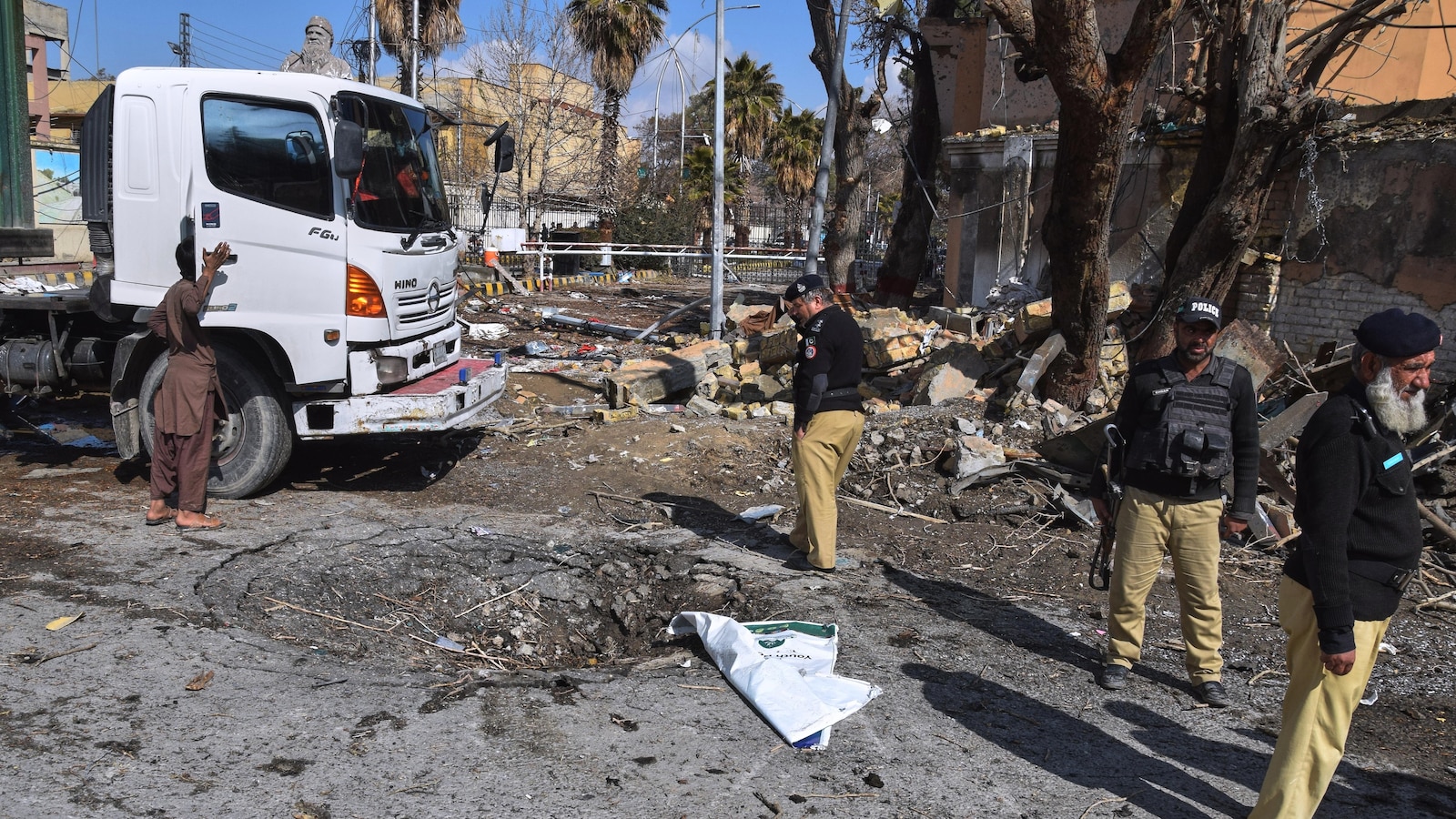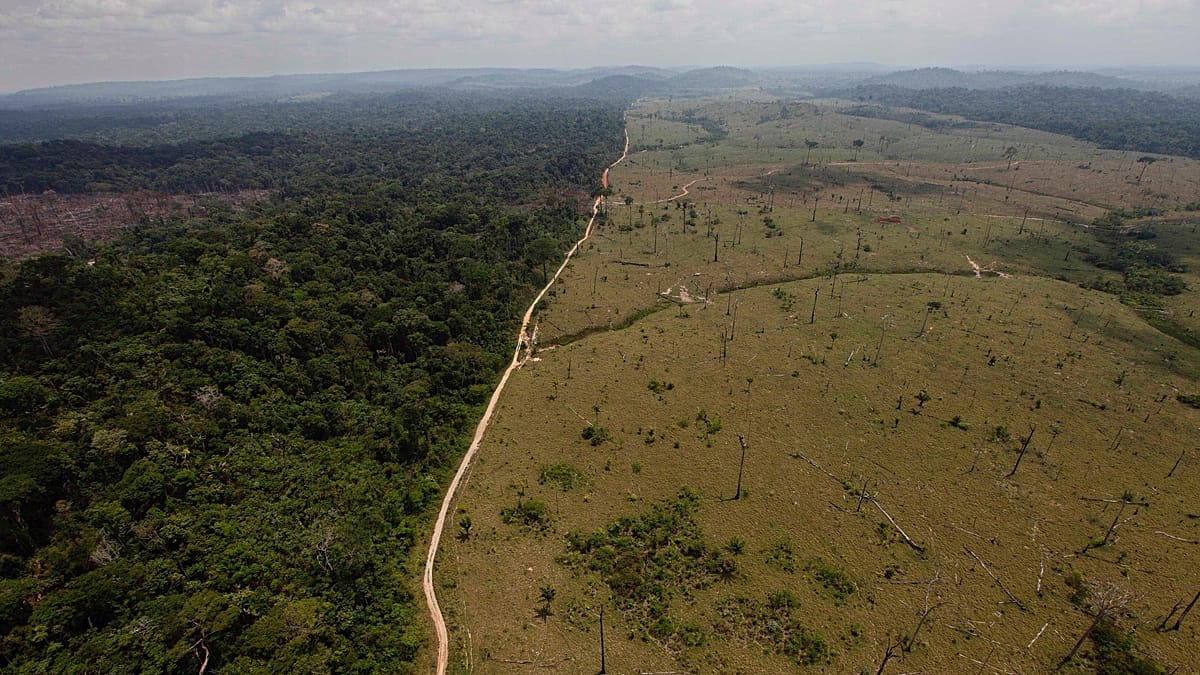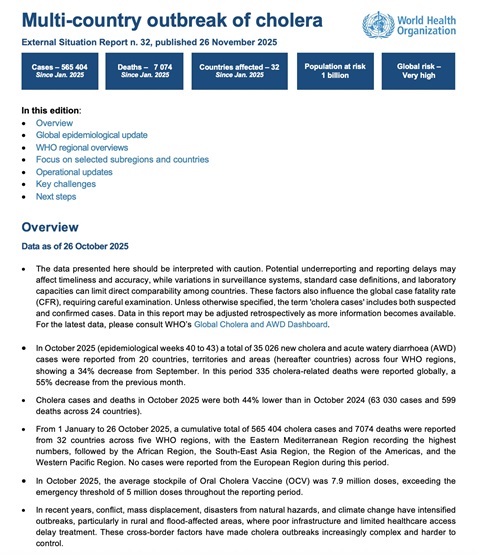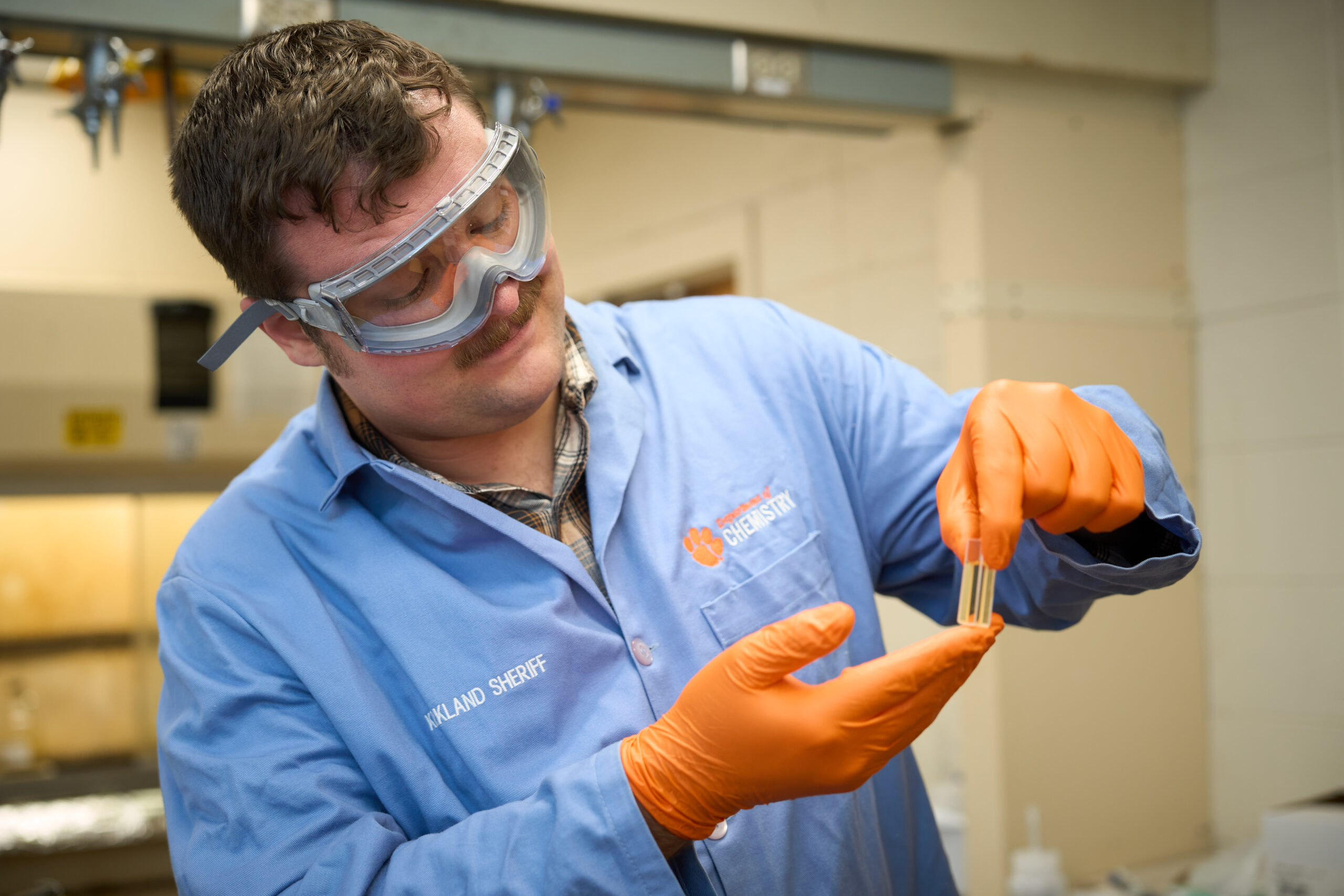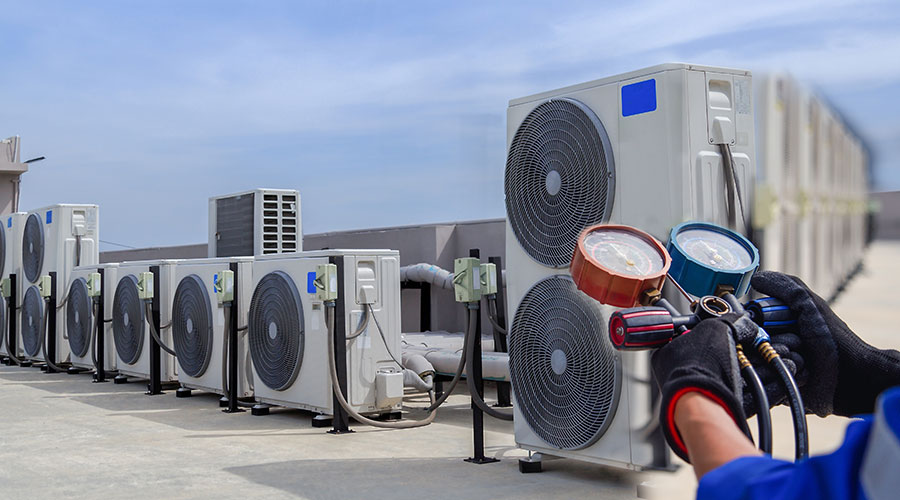Call for submissions | Environment-related International Processes, Negotiations, and Fora – Geneva Environment Network

Report on Opportunities and Initiatives Supporting the Sustainable Development Goals
Advancing Global Partnerships and Environmental Health through the Special Programme
In an effort to advance SDG 12 (Responsible Consumption and Production) and SDG 3 (Good Health and Well-being), the Special Programme is strengthening institutional capacity for the sound management of chemicals and waste. This initiative directly supports the achievement of environmental targets across SDG 6 (Clean Water and Sanitation), SDG 14 (Life Below Water), and SDG 15 (Life on Land) by mitigating pollution.
Executive Board Nominations
A call for nominations for the Executive Board of the Special Programme for the 2026-2028 term is open until 1 November 2025. This process is a key component of SDG 17 (Partnerships for the Goals), ensuring inclusive governance and representation from both recipient and donor countries. Nominations must be submitted by Governments to unepchemicalsspecialprogramme@un.org.
Call for Contributions to the Special Programme Trust Fund
To continue its mandate, the Special Programme invites contributions to its Trust Fund. Financial support is critical for implementing projects that strengthen national institutions, thereby enabling countries to meet their commitments under international conventions. These contributions are a direct investment in the 2030 Agenda, particularly for developing countries striving to achieve their environmental and health-related SDGs. Interested donors may contact the secretariat at unepchemicalsspecialprogramme@un.org and eduardo.calderapetit@un.org.
Global Health and Tobacco Control: WHO FCTC Conferences
Two significant conferences will be held to advance SDG 3 (Good Health and Well-being), specifically Target 3.a, which calls for strengthening the implementation of the WHO Framework Convention on Tobacco Control.
- The eleventh session of the Conference of the Parties (COP11) to the WHO FCTC will take place from 17-22 November 2025 in Geneva, Switzerland.
- The fourth session of the Meeting of the Parties (MOP4) to the Protocol to Eliminate Illicit Trade in Tobacco Products will be held from 24-26 November 2025 in Geneva, Switzerland.
Media accreditation for these events closes on 3 November 2025.
Geneva Forum: Fostering Multi-Stakeholder Partnerships for the SDGs
The 17th edition of the Geneva Forum is issuing a call for contributions, inviting stakeholders to develop solutions for contemporary challenges. This initiative promotes SDG 17 (Partnerships for the Goals) by convening experts from diverse sectors. The thematic areas directly support a range of SDGs, including:
- SDG 8 (Decent Work and Economic Growth) and SDG 11 (Sustainable Cities and Communities) through discussions on resilient and regenerative tourism.
- SDG 16 (Peace, Justice and Strong Institutions) via workshops on peace and diplomacy.
- SDG 9 (Industry, Innovation and Infrastructure) through a focus on civic innovation and responsible entrepreneurship.
The deadline for submissions is 17 November 2025.
Global Framework on Chemicals Fund: Financing for Sustainable Development
The Global Framework on Chemicals Fund has launched its second round of applications, providing a critical financial mechanism to support developing countries, LDCs, and SIDS in achieving SDG 12 (Responsible Consumption and Production). By funding projects that improve chemicals management, the Fund contributes to protecting human health (SDG 3) and the environment (SDGs 6, 14, 15).
Applicant Eligibility
- Governments: Developing economies, LDCs, SIDS, or CEITs that have formally recognized the Global Framework on Chemicals.
- Civil society networks: May apply on an exceptional basis with the agreement of the host country.
The deadline for concept notes is 15 December 2025.
The Santiago Network: Technical Assistance for Climate Action
The Santiago Network provides technical assistance to developing countries to address climate change impacts, directly supporting the implementation of SDG 13 (Climate Action). By focusing on the needs of vulnerable communities, including women, youth, and Indigenous Peoples, the network also advances SDG 1 (No Poverty) and SDG 10 (Reduced Inequalities).
Eligible Entities for Requests
- Government and public institutions
- Academic institutions
- Non-governmental organizations
- Civil society organizations
Requests are accepted on a rolling basis and can be submitted via the Santiago network portal or by email to secretariat@santiago-network.org.
Reforming Global Governance for Sustainable Development
Rethinking Investment Treaties
The International Institute for Sustainable Development (IISD) has launched a public consultation to reimagine investment treaties. This initiative aims to align international investment law with the 2030 Agenda, contributing to SDG 16 (Peace, Justice and Strong Institutions) and SDG 17 (Partnerships for the Goals). Reforming these treaties is essential to ensure governments have the policy space to regulate in favor of environmental protection and social equity, impacting all SDGs.
Health Diplomacy Youth Network
The Health Diplomacy Youth Network engages young leaders in global health policy, fostering a new generation of advocates for SDG 3 (Good Health and Well-being). This platform supports SDG 17 by building partnerships and ensuring youth voices contribute to shaping the future of global health.
Cooperation on Air Quality and Climate Change
Global Air Quality Cooperation Network
In response to UNEA Resolution 6/10, a Global Air Quality Cooperation Network is being established to promote regional cooperation. This network is vital for achieving SDG 3.9 (reduce deaths from pollution), SDG 11.6 (reduce the environmental impact of cities), and supports SDG 13 (Climate Action). Member states are invited to nominate up to two national focal points to strengthen this global partnership (SDG 17).
UNFCCC Calls for Submission
The UNFCCC Secretariat regularly collects stakeholder views to inform climate negotiations. This process enables non-party stakeholders to contribute to global climate governance, embodying the inclusive spirit of SDG 17 and facilitating progress on SDG 13 (Climate Action). The UNFCCC Submissions Tracker by IISD provides information on these opportunities.
Local Initiatives for Clean Energy and Human Rights
Grants for Hydrogen Sector Development
The Canton of Geneva has established a ten million franc investment credit to promote collaborative projects developing the hydrogen value chain. This fund supports local implementation of SDG 7 (Affordable and Clean Energy) and SDG 13 (Climate Action) by fostering innovation (SDG 9) and contributing to sustainable communities (SDG 11).
Human Rights Mechanisms
The Human Rights Council and other UN bodies are calling for inputs for reports. These submissions provide an opportunity to strengthen the link between human rights and environmental protection, advancing SDG 16 (Peace, Justice and Strong Institutions). This work is crucial for upholding the right to a clean, healthy, and sustainable environment, which underpins the achievement of numerous environmental SDGs.
Analysis of Sustainable Development Goals in the Article
1. Which SDGs are addressed or connected to the issues highlighted in the article?
-
SDG 3: Good Health and Well-being
- The article addresses this goal through multiple initiatives. The section on the “WHO Framework Convention on Tobacco Control (WHO FCTC) COP11” directly relates to reducing tobacco use, a major public health issue. The “Special Programme” and the “Global Framework on Chemicals Fund” aim to strengthen institutional capacity for chemicals and waste management, which minimizes adverse impacts on human health. The establishment of the “Global Air Quality Cooperation Network” also contributes by tackling air pollution, a significant health risk.
-
SDG 7: Affordable and Clean Energy
- This goal is connected through the section “Subventions de projets développant la filière hydrogène”. The article mentions a ten-million-franc investment credit in Geneva to promote collaborative projects that develop the hydrogen sector. Hydrogen is a clean energy source, and supporting its development contributes to the transition to sustainable energy.
-
SDG 11: Sustainable Cities and Communities
- The focus on improving air quality through the “Global Air Quality Cooperation Network” is directly relevant to making cities and human settlements more sustainable. The network aims to promote regional cooperation to improve air quality globally, which is a critical aspect of urban environmental management.
-
SDG 12: Responsible Consumption and Production
- The “Special Programme” and the “Global Framework on Chemicals Fund” are central to this goal. They support countries in achieving the environmentally sound management of chemicals and all wastes, a key component of sustainable consumption and production patterns.
-
SDG 13: Climate Action
- The article highlights this goal through the “Santiago Network,” which was established to catalyze technical assistance for averting, minimizing, and addressing loss and damage associated with the adverse effects of climate change in developing countries. Furthermore, the “UNFCCC Submissions Tracker” facilitates stakeholder engagement in climate negotiations, which is crucial for enhancing global climate action.
-
SDG 16: Peace, Justice and Strong Institutions
- This goal is addressed by strengthening institutions and promoting inclusive decision-making. The “Special Programme” and the “Global Framework on Chemicals Fund” build institutional capacity for chemicals management. The calls for submissions to the UNFCCC and Human Rights Mechanisms, as well as the public consultation on “Rethinking Investment Treaties,” promote inclusive, participatory, and representative decision-making at all levels.
-
SDG 17: Partnerships for the Goals
- This goal is a cross-cutting theme throughout the article. Nearly every initiative mentioned involves international cooperation and multi-stakeholder partnerships. Examples include the call for contributions to the “Special Programme Trust Fund” from governments and the private sector, the provision of technical assistance through the “Santiago Network,” and the various calls for submissions and participation that bring together governments, civil society, academia, and the private sector.
2. What specific targets under those SDGs can be identified based on the article’s content?
-
Target 3.a: Strengthen the implementation of the World Health Organization Framework Convention on Tobacco Control in all countries.
- The announcement of the eleventh session of the Conference of the Parties (COP11) to the WHO FCTC is a direct action towards the implementation and strengthening of this convention.
-
Target 3.9: By 2030, substantially reduce the number of deaths and illnesses from hazardous chemicals and air, water and soil pollution and contamination.
- The “Special Programme,” the “Global Framework on Chemicals Fund,” and the “Global Air Quality Cooperation Network” all contribute to this target by promoting better management of chemicals and waste and fostering cooperation on reducing air pollution.
-
Target 7.2: By 2030, increase substantially the share of renewable energy in the global energy mix.
- The Geneva initiative to provide grants for projects developing the hydrogen sector directly supports the development and adoption of a clean energy source, contributing to this target.
-
Target 11.6: By 2030, reduce the adverse per capita environmental impact of cities, including by paying special attention to air quality and municipal and other waste management.
- The “Global Air Quality Cooperation Network” directly addresses the air quality component of this target by promoting regional and global cooperation.
-
Target 12.4: By 2020, achieve the environmentally sound management of chemicals and all wastes throughout their life cycle… and significantly reduce their release to air, water and soil in order to minimize their adverse impacts on human health and the environment.
- The article’s description of the “Special Programme” and the “Global Framework on Chemicals Fund” explicitly mentions their mandate to strengthen institutional capacity for and implement chemicals and waste management commitments, which aligns perfectly with this target.
-
Target 13.b: Promote mechanisms for raising capacity for effective climate change-related planning and management in least developed countries and small island developing States…
- The “Santiago Network” is designed to provide technical assistance to developing countries, particularly vulnerable ones like LDCs and SIDS, to address loss and damage from climate change, thereby enhancing their planning and management capacity. The “Global Framework on Chemicals Fund” also pays “particular attention to urgent needs and the requirements of LDCs and SIDS.”
-
Target 17.9: Enhance international support for implementing effective and targeted capacity-building in developing countries to support national plans to implement all the Sustainable Development Goals…
- The “Special Programme” and the “Santiago Network” are clear examples of this target in action, as their core functions are to provide financial support and technical assistance to strengthen institutional capacity in developing countries for chemicals management and climate action, respectively.
-
Target 17.17: Encourage and promote effective public, public-private and civil society partnerships, building on the experience and resourcing strategies of partnerships.
- The article is replete with examples of this target. The “Special Programme” invites contributions from the private sector and NGOs. The “Geneva Forum” brings together players from “scientific, associative, institutional, and civic worlds.” The UNFCCC calls for submissions are open to “academics, civil society organizations, private sector entities, and youth and Indigenous Peoples’ groups.”
3. Are there any indicators mentioned or implied in the article that can be used to measure progress towards the identified targets?
-
Financial Contributions and Funding
- The calls for contributions to the “Special Programme Trust Fund” and the “Global Framework on Chemicals Fund” imply that the amount of funds mobilized is a key indicator of support for chemicals and waste management (relevant to SDG 12 and 17). The mention of a “ten million de francs” budget for the hydrogen plan in Geneva is a direct financial indicator (SDG 7).
-
Number of Projects and Applications
- The calls for applications for the “Global Framework on Chemicals Fund” and requests for technical assistance for the “Santiago Network” suggest that the number of applications received and projects funded/supported serves as an indicator of demand and action in these areas (relevant to SDG 12, 13, and 17).
-
Stakeholder Participation and Engagement
- The various calls for nominations (Special Programme Executive Board), media accreditation (WHO FCTC COP11), contributions (Geneva Forum), and submissions (UNFCCC, Human Rights Mechanisms) imply that the number and diversity of participants, nominations, and submissions are indicators of inclusive and participatory processes (relevant to SDG 16 and 17).
-
Establishment and Membership of Networks
- The creation of the “Global Air Quality Cooperation Network” and the “Health Diplomacy Youth Network,” along with the call for Member States to nominate focal points, indicates that the establishment of such cooperative bodies and the number of participating countries/members are measures of progress in international cooperation (relevant to SDG 3, 11, and 17).
4. Table of SDGs, Targets, and Indicators
| SDGs | Targets | Indicators Identified in the Article |
|---|---|---|
| SDG 3: Good Health and Well-being |
|
|
| SDG 7: Affordable and Clean Energy |
|
|
| SDG 11: Sustainable Cities and Communities |
|
|
| SDG 12: Responsible Consumption and Production |
|
|
| SDG 13: Climate Action |
|
|
| SDG 16: Peace, Justice and Strong Institutions |
|
|
| SDG 17: Partnerships for the Goals |
|
|
Source: genevaenvironmentnetwork.org
What is Your Reaction?
 Like
0
Like
0
 Dislike
0
Dislike
0
 Love
0
Love
0
 Funny
0
Funny
0
 Angry
0
Angry
0
 Sad
0
Sad
0
 Wow
0
Wow
0



















